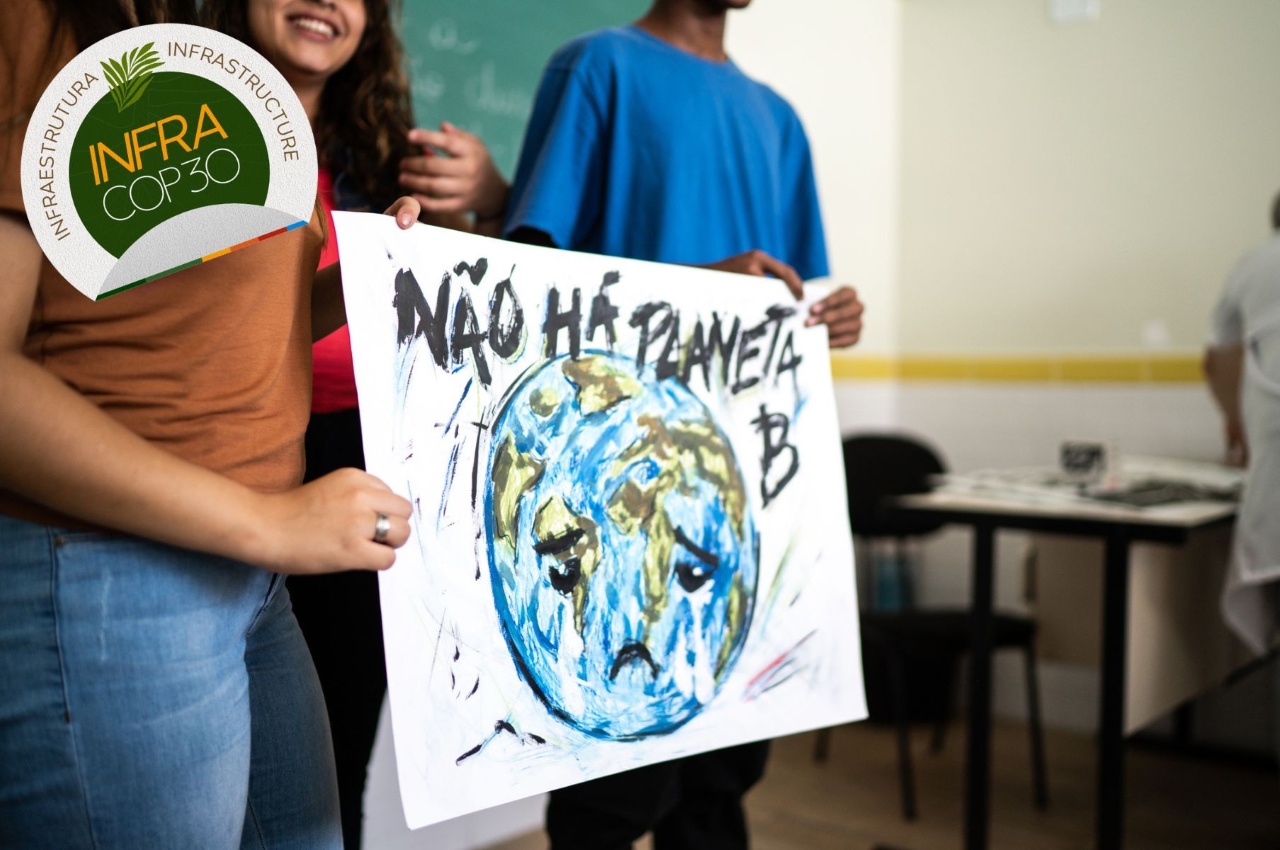Ahead of COP30, the federal government is increasing its investment in environmental education
As the host of the upcoming COP30 conference, Belém seeks to become a hub for environmental education activities for young people and adults, fostering civic engagement and social leadership

By Franciéli Barcellos de Moraes | COP30
Environmental education for sustainability is one of the key areas in which the Brazilian federal government is investing in Belém, the host city of COP30, the United Nations Climate Change Conference scheduled for November. Through Agreement 71, Itaipu is seeking to leave a legacy of societal impact to the local community, not only of infrastructure, by purchasing a hydrogen-powered boat, renovating Recyclables Recovery Units (Unidades de Valorização de Recicláveis/UVRs), and developing a Bioeconomy Innovation Center.
These investments represent the company’s largest financial commitment outside its core operating area in the city's history. The agreement includes approximately BRL 40 million in funding. A major milestone was reached on May 26 with the launch of the “Coleta Mais Belém” program. The program establishes selective waste collection in partnership with four recycling cooperatives in the capital city of the state of Pará.
At the launch of the Paths of Environmental Education publication at Itaipu Binacional, Carlos Carboni, Itaipu’s Director of Coordination, stressed the importance of such initiatives. “I believe environmental education plays a crucial role in fostering awareness. It’s not just about mobilization, which is already extraordinary, but also about fostering a commitment to transformation,” he said. More than one million people have already directly benefited from Itaipu’s sanitation initiatives across 37 neighborhoods.
This vision is shared by Brasil’s Minister of the Environment and Climate Change, Marina Silva. "Environmental education plays many roles. It helps us reimagine what we want as a country, as a society, as communities, and as individuals," she stated during a special Senate session last year commemorating the 25th anniversary of the National Environmental Education Policy (Política Nacional de Educação Ambiental/PNEA).
The agreement's initiatives aim to promote civic engagement and social empowerment through training and hands-on activities directed at school communities, local leaders, and waste pickers from the UVRs. These initiatives foster alternative models for just and sustainable development. Key activities include teacher training, with plans to hold seminars for approximately 1,000 educators, as well as an online course in partnership with the Itaipu International School of Sustainability. Last year's inaugural workshop featured Ailton Krenak, the first Indigenous member of the Brazilian Academy of Letters (Academia Brasileira de Letras).
"Environmental education is a playful and practical way to address topics that often seem distant from our daily lives, like climate change. But here in Belém, we are already feeling the effects every day. Environmental education shows that awareness isn’t for later — it is for now"
— Ana Luiza de Araújo, a geographer and environmental activist from the Amazônia region who is part of the project
The project also involves developing educational materials and holding ten workshops on subjects including community gardening, bio-jewelry, nature photography, artistic expression using natural elements, reusing materials (such as cooking oil), socio-educational games, and graffiti. By the time COP30 takes place, 68 theater performances centered on recycling themes will have been held in community spaces, such as local markets and neighborhood associations.
Since the creation of the Ecomuseum (Ecomuseu) in 1987, environmental education has been a cornerstone of Itaipu Binacional’s socio-environmental efforts. These efforts align with global frameworks such as the Earth Charter, the Treaty on Environmental Education for Sustainable Societies and Global Responsibility, and the United Nations 2030 Agenda for Sustainable Development (SDGs).
Implementation of biodigesters
To promote sustainability in schools, the project involves installing 36 biodigesters in public schools. These biodigesters convert organic matter into biogas and biofertilizer. The initiative includes 32 schools, some of which are located in the Belém Island region, and will reach approximately 18,000 students from early childhood education through ninth grade.
The biodigesters are integrated into the schools’ political and pedagogical projects through practical workshops, content linked to curricular subjects, and extracurricular activities. More than half of the schools have had their biodigesters installed, resulting in cost savings through cooking gas production.
